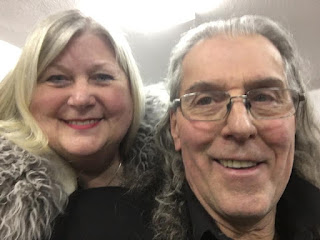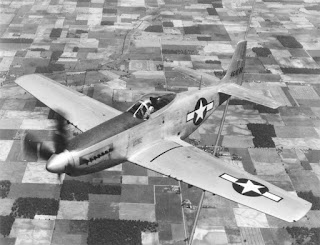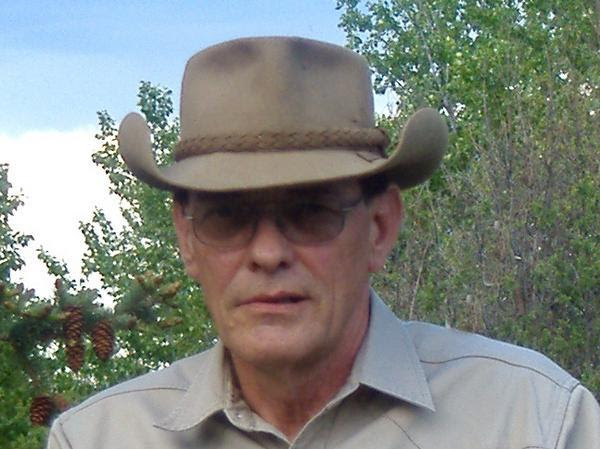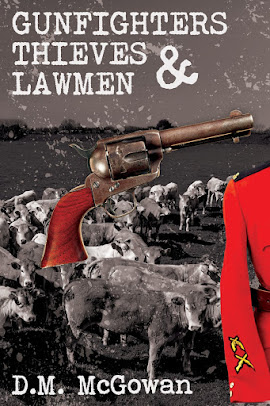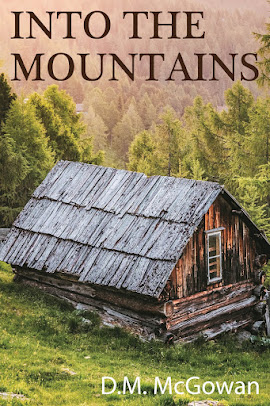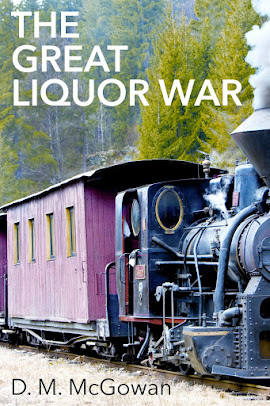Once again Remembrance Day is just
around the corner so I present what has become an annual event, the story of a
young Canadian who served with many US citizens in the British Royal Airforce
under British Officers.
This is a story I’ve
posted before but I think it should appear again in recognition of Remembrance
Day and of a very good friend with whom I loaded and unloaded many cartridges
of a variety of calibers. I also had the pleasure of hearing his guitar behind
my vocals on several occasions and playing both bass and guitar behind his
excellent vocals.
I’ve
changed a few things but those who knew him will recognize the story and the
man it portrays.
Following the Battle of Britain he returned to Canada and taught fighter pilots for the last
few years of WWII. Following the war he did not stay in the air and came to
regret it. In the early seventies he saw an article about the “Great Lakes” biplane being re-licensed and made available
to the public once again. He managed to qualify for a private pilot’s license
and to solo in a “Great Lakes” before his
death.
The aircraft on top is a P-51 Mustang the first of which finally
appeared in Britain
in October 1941. The first 93 shipped to England where equipped with 4 - 20
mm cannon (Mustang IA) unlike later versions which, like the US versions
sported 4 - .50 cal. guns.
At the beginning of the Battle of Britain almost any aircraft
available was used. The most successful and the one that could probably be said
to have won the battle (if any single one did) is the Spitfire pictured on the
bottom. They used 8 Browning machine guns chambered for the .303 British round.
Deacon
Before men started shooting at him with 7.92 mm
bullets Harry Burnside had been a singer. He stood in front of fifteen, twenty
and sometimes thirty-man orchestras and sang the Dorsey, Kenton, or Ellington
songs or whatever else the crowd in front and the band behind wanted to hear.
He had worked his magic in Detroit, Chicago, Pittsburgh, Cincinnati and his home town, Windsor, Ontario. Harry thought it was
only right to use his natural talent, his voice to make at least part of his
living. It had also been a great way to start a young life and learn the music
and entertainment business from professionals. It was only incidental that it
was the perfect place for a teenager to learn from the masters how to party.
Sometimes horrendous events are necessary to save a
young man from himself. In Harry’s case it was the war in Europe that brought a young man’s party life
to a close, at least temporarily. Of course it also accelerated the danger in
that life.
Not that Harry rushed to a recruiting station in the
autumn of 1939. Some of his young friends and even the older men he worked with
certainly did. It was one of the older musicians who convinced him signing up
for service was the thing to do.
“Folks ‘r sayin’ this here war is gonna be over in no
time,” Marvin, a trumpet player said. “They is sorely mistaken. I bin readin’
up on these here Germans an’ they got ‘em an army. British ain’t got nothin’
an’ they’s gonna get whacked.”
“Are you suggesting we Canadian boys should go over
there and get whacked, as you say, right along with them?” Harry asked.
“First off, I ain’t a Canuk, I’m a southern boy,”
Marvin said. “Second, when things get tough they’ll be comin’ for us anyway.
Might as well sign up for somethin’ you want t’ do instead o’ somethin’ the
government thinks you’d be good at.”
“You’re country isn’t in it,” Harry pointed out.
“Not yet,” Marvin responded. “Now, you’ve been workin’
here an’ there along with singin’. I don’t got no income but my trumpet. A man
signs up he’ll get three squares a day an’ a cot.”
Harry took a drink of his whiskey and water and cast
his gaze around the musicians gathered in the late night or, to those who were
not musicians, early morning booze hall.
“You know, Marv, I’ve always wanted to learn to fly a
plane,” Harry said.
Marvin clapped him on the shoulder. “Now you’re
talkin’, boy. Royal Canadian Air Force. What say we go sign up first thing in
the mornin’?”
Harry looked at his watch. “Might I suggest early this
afternoon? I might be awake by then.”
Somewhere between Windsor, Ontario and Ashford, Kent, Harry lost touch with Marvin,
but not with men from the southern States. Almost half the men stationed on the
airfield were Americans who had travelled north to Canada and signed on with the RCAF.
Though they wore Canadian uniforms and insignia they
were technically in Royal Air Force squadrons. Their squadron commander was a
British major, and Harry’s wing commander a Canadian Lieutenant. The other two
Canadian pilots presently assigned to their understaffed wing were actually
from Arkansas. In the two man barracks enjoyed by
RAF pilots one of those southerners, Otis Tyler was Harry’s bunk mate.
“Ah hear we all getting’ new radios next month,” Otis
said as the two pilots walked down the hall one early morning in late August.
Harry shrugged with one shoulder as he held the door
open with the other hand and let Otis out into the humid dawn. “Be fine if
they’re better than the T9. But if they aren’t, well, I’m starting to get used
to being up there all by myself.”
“Mighty handy fur tellin’ somebody where you’s ‘bout
t’ crash,” Otis noted.
“As long as they work and you’re no more than a mile
away” Harry countered. “The T9 is good for about that far. You’re probably
better off depending on a farmer seeing you go down.”
Otis chuckled.
As they approached the mess hall their wing leader,
Lieutenant Mapes reached the door and opened it for them.
“Good news chaps,” the officer said as the two
non-coms passed through the door he held open for them. “Just spoke with the
CO. We stand down today.”
“Excellent!” Harry said. “Now I can have some real
breakfast and more than one cup of coffee.”
“Yuh all worry too much ‘bout that coffee thing,” Otis
said.
“Quite good policy,” the Lieutenant said.
“Nothin’ to it,” Otis responded. “Yuh all just take an
empty cola bottle up with yuh.”
“I say, old boy, a bit hard to pee in a bottle when
one is trying to avoid the 109 that is glued to your tail. Not to mention that
bottle flying around loose in the cockpit.”
“Yuh all make sure yuh strap it in so it don’ fly
‘round,” Otis said. “As fur takin’ a leak when Gerry’s on muh tail an fillin’
my magic carpet full o’ holes, why ‘bout then I don’ have no trouble passin’
water.”
Lieutenant Mapes laughed. Harry grinned and shook his
head in resignation.
“Since we aren’t going up to be shot at, perhaps we
could talk about something else?” Harry suggested.
“Our Calm Colonial boy is right once again,” Mapes
said. “We have a day to repair gear.”
“And talk about new radios,” Harry suggested.
“There isn’t anything to talk about,” Mapes said.
“I’ve heard the same rumours as you men. However, I haven’t heard anything from
the Old Man and I haven’t seen any radios. Other than the 9 in my Spit that
quit working entirely the last time I was up.”
Later that day, Otis asked Harry to join him and some
other airmen to study and review the local ladies and pubs. However, Harry had
grown out of the need to wake up with a pounding hangover. He had already had
years of partying. Besides, bringing in bullet scarred Spitfires had made the
drinking bouts seem very unimportant. His mates, often a year younger still
asked him even though he seldom went with them.
An hour after the other pilots had gone into town
Harry walked off the base and caught a ride into Ashford. He walked the streets
for awhile admiring the buildings and the history.
Occasionally a Junkers 88 would fly across theEnglish
Channel very close to the water,
start a steep climb to miss the Cliffs of Dover and release a bomb mounted to
its belly at the end of that climb. The speed of the bomber combined with the
force of the climb would cast that bomb for a very long way and it would land
wherever the laws of physics, geology, and aerodynamics might decide and no man
could say. On that beautiful day in late August, 1940 a building Harry had
admired moments before and at that moment was no more than a block and a half
away, disappeared in a cloud of dust, smoke and noise.
Harry Burnside had been flying over Britain for three months. He had been as far
as France on a half dozen occasions. He had no
idea how many dog fights he had been in but had shot down three Me 109s and
crash landed twice. He had landed successfully in Spitfires that probably
should have quit flying several minutes before. He had been scared out of his
mind on those occasions but had worked his way through it.
That day, on the streets of Ashford, after the
completely random bombing of a very historic building, Harry Burnside could not
control the choking fear.
Looking around he saw the sign for a pub, the Anvil
and Hammer. He stepped through the door and saw ale glasses stacked on the bar.
He turned the pint glass over and said to the barman, “Whiskey.”
The barman could see by the look on Harry’s face that
discussion might be dangerous. He poured a shot into the ale glass.
“Fill it,” Harry ordered.
The inn keeper complied.
Harry downed the whiskey and noticed only in passing
that it was smooth, single malt.
He
put the glass back down on the bar and said, “Again.”
Once
it was full, he downed the second glass.
He
remembered opening the door to his barrack, but very little after that.
Much
later Otis Tyler returned to find his bunk mate, the man who usually refused to
go drinking with his mates, passed out on the floor.
“Burnside,” he said, as he picked Harry up and placed him on the bunk, “yuh all
just like them travelin’ preachers back t’ home; Preachin’ hell fire an’
brimstone then next thing yuh got some farmer’s daughter out behind the tent.”
And
that is how Sergeant Pilot Harold Burnside became known as “Deacon.”



